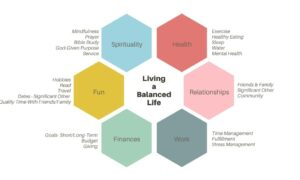
Introduction
The attention-deficit/hyperactivity disorder (ADHD), which affects millions of children, typically persists into adulthood. ADHD is characterized by a number of recurring symptoms, such as difficulty focusing, hyperactivity, and impulsive behavior.
Children with ADHD may also struggle with poor academic achievement, troubled relationships, and low self-esteem. Sometimes as we get older, symptoms become better. However, some people never fully recover from their ADHD symptoms. Kids can, however, learn effective coping skills.
Even if medicine won’t cure ADHD, it can significantly lessen symptoms. Behavioral therapy and medication are regularly employed in treatment. Early diagnosis and treatment can have a significant influence on the outcome.
Symptoms of ADHD in Children
ADHD’s main characteristics include hyperactive-impulsive conduct and inattention. Before the age of twelve, DCD symptoms begin, and in some kids, they become apparent as early as three.
Boys are more likely than girls to have ADHD, and behaviors between boys and girls might differ. For instance, guys could be more energetic and girls might favor peaceful indifference.
Types of ADHD:
· Inattention
Most symptoms observed are under the category of inattention.
- Impulsivity and hyperactive mostly
Most of the symptoms are impulsive and hyperactive.
- Combined
This is a combination of inattention and impulsive and hyperactivity.
Inattention
A youngster who consistently displays inattention may frequently:
- Make casual errors or fail to pay great attention to specifics when completing schooling
- Have problems keeping engaged in activities or games Display a lack of attentiveness even when talked to directly
- fail to complete tasks or studies due to difficulties in following directions
- Having problems planning your daily schedule
- Avoid or detest jobs that need concentration of mental energy, such as schoolwork
- Items that are required for chores or activities, such toys, homework, or pencils, go missing
- be prone to distraction
- failing to complete some everyday tasks, such as housework
Impulsivity and hyperactive
When a youngster has a habit of being impulsive and energetic, they may frequently:
- Cannot sit patiently on the chair, fidget, or tap his or her hands or feet.
- When it is inappropriate, avoid moving around or climbing.
- having difficulty playing or working silently
- Talk excessively
- Respond incoherently, cutting off the questioner.
- have trouble waiting for their turn
- Interrupt or pry into other people’s games, talks, or activities
When to see a Child Counselor
Consult a Child Counselor if you are worried that your kid may be showing indications of ADHD. It’s vital to first have a medical assessment to rule out any other potential reasons of your child’s challenges.
Risk factors of ADHD
ADHD risk factors might include:
- Blood relations that have ADHD or another mental health condition, such as a parent or sibling
- exposure to environmental contaminants, such as lead, which is mostly present in older buildings’ paint and pipes
- pregnant women who do drugs, drink alcohol, or smoke
- birth prematurely
- Although sugar is frequently blamed for creating hyperactivity, there is no solid evidence to support this. The inability to maintain attention can be caused by a variety of developmental difficulties, but this is not the same as CDC.
Complications In ADHD
For youngsters with ADHD, life can be challenging. ADHD in children:
- Struggles in the classroom frequently, which may result in academic failure and criticism from other kids and adults.
- Children with ADHD tend to have more mishaps and injuries of all types than children without ADHD.
- Frequently experience low self-esteem
- are more likely to struggle with social interaction and adult and peer acceptance
- are more likely to engage in drug and alcohol misuse as well as other delinquent activities.
- Conditions that coexist
Other psychological or developmental issues are unaffected by ADHD. However, youngsters with ADHD are more likely than normal children to also have the following conditions:
- The broad definition of oppositional defiant disorder (ODD) is a pattern of aggressive, rebellious, and negative conduct toward authority figures.
- Conduct disorder is characterized by antisocial conduct, including theft, fighting, property destruction, and injury to people or animals.
- Irritability and difficulty tolerating irritation are symptoms of disruptive mood dysregulation disorder.
- Issues with reading, writing, understanding, and communicating are among learning impairments.
- disordered substance use, like drugs use
- Obsessive compulsive disorder (OCD), can lead to excessive concern and jitters.
- Mood illnesses, such as depression and bipolar disorder, which encompasses both manic and depressive symptoms
- Associated with brain development, autism spectrum disorder affects how a person perceives and interacts with others.
Prevention Of ADHD
To lessen your child’s chance of developing ADHD:
- Avoid anything that can impair fetal growth while you are pregnant. Don’t smoke cigarettes, use recreational drugs, or consume alcohol, for instance.
- healthy eating habits
- Keep your youngster away from poisons and pollutants, such as cigarette smoke.
- Reduce your screen time. Although not yet proven, it may be advisable for kids to limit their time spent watching TV and playing video games during their first five years of life.
Expectation from children with ADHD
For most children with ADHD, the long-term outlook is favorable with the appropriate therapy. When they reach adulthood, some people are able to manage their symptoms so successfully that they are no longer considered to have ADHD.
Some people have CDC their whole lives. But many people enjoy healthy, happy lives with the aid of therapy and symptom control.
The following are some advantages of ADHD:
- High-spirited creativity
- being able to hyper focus on something you’re extremely interested in
Conclusion
Focus and concentration problems in children with ADHD may persist throughout their entire lives. But they can control their symptoms with therapy, a healthy lifestyle, and parental support. Find the best option for your kid by collaborating with their teachers and Child Counselor.
If you are looking for an ADHD Therapist you can choose TalktoAngel. It is an online platform for child counseling. They help in eliminating symptoms of ADHD from the child thus helping in overall development of the child and their future.





